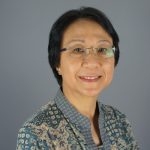Global church and mission leaders want to see diversity in our teams. But in reality, we seldom go beyond diversity to equality, and even less likely to mutuality where differences are not just tolerated but warmly embraced.
In his article ‘Uncovering Discrimination in Missions’, Kirst Rievan, a leader in Asia and the Pacific for a global faith-based development organization, hit the nail on the head by addressing the complex issue of unintentional discrimination or unconscious bias ‘against staff and partners of different ethnicities’ in Christian organizations. With reference to the six cultural dimensions developed by missiologist Sherwood Lingenfelter, together with some of the organizational practices related to each cultural dimension, Kirst suggests ways to remove systemic organizational inequality. He proposes creating a third culture whereby our organizations are ‘flexible enough that when new people are added, their cultures are further enriching it.’ And he provides some penetrating questions for reflection for all organizations who wish to bring about this change.
African Pentecostal churches are aware of the global nature of Christianity and know what it means to be multicultural. Some examples are given in ‘Pentecostalism in African Christianity’ by Daewon Moon, Academic Dean at International Leadership University in Burundi. We are to recognize and celebrate ‘the remarkable emergence of Pentecostal churches in Africa in recent decades . . . understood as the cumulative effort of renewal movements that took place in Africa over the previous century. Africans’ pivotal roles in these movements shaped and deepened charismatic spirituality in the various denominations of Africa’s Christian churches’, writes Daewon. To understand African Pentecostalism, its contemporary trends and issues, we are reminded of ‘its experiential and spontaneous nature’ which makes it challenging to fit into ‘the neat category framed by philosophically-oriented Western theologians’.
‘Corona fatigue’ is a symptom many could identify with after almost a year since the outbreak of COVID-19, resulting in lockdowns and quarantines, restricting social interactions and depriving the vulnerable of social support. How can we be a channel of ‘Building Hope and Resilience in the COVID-19 Storm’? Consulting Clinical Psychologist & Trauma Specialist, Gladys Mwiti sensitively addresses some of the psychosocial impact of the pandemic. She believes that through ‘the practice of holistic self-care and other care’—spiritual, physical, and mental care—resilience will be enhanced. Self-care includes caring for staff and members of our own organizations: church, mission agencies, charities. Other care involves ‘creating caring communities’ and speaking ‘a message of hope to the nation’. She concludes by highlighting the crucial role of the church during such times.
Clearly ‘the recent coronavirus pandemic has exemplified the increasing role of the church in society’, writes Ted Lankester, President and senior clinician with the international humanitarian support organization, Thrive Worldwide. In ‘Faith, Health, and Collaborative Love’, he poses some of the major questions we need to consider seriously: What long term impact will COVID-19 have on global health and development? What are some possible solutions? How can the church play the most useful role at this time? How can health professionals be best involved and collaborate most effectively—locally, nationally, and internationally? In summary, Ted emphasizes, ‘kind leadership, community examples, and creative compassion are the very attributes that Jesus taught us, and that the church is so well placed to achieve at such a time as this.’ He believes in ‘the redemptive hope that God will bring unexpected blessings’.
It is January 2021. May we, the global body of Christ, bring New Year blessings to our world by becoming communities of embrace rather than exclusion; even as we are deeply bonded together in times of sorrow, something which we could never achieve in times of joy and plenty.
Lausanne Global Analysis is also available in Portuguese, Spanish, and French. Please send any questions and comments about this issue to [email protected]. The next issue will be released in March 2021.

